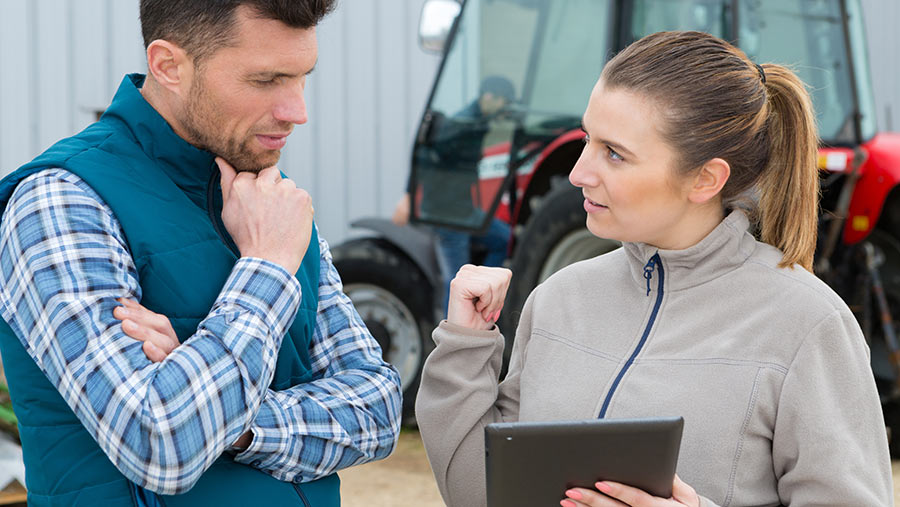Business Clinic: Insurance and safety tips for student harvest help

Whether it’s a legal, tax, insurance, management or land issue, Farmers Weekly’s experts can help. Here, Paige Dalby of insurance broker Farmers and Mercantile explains what checks to make when employing student staff at harvest.
Q. We are taking on a student labourer this harvest to help with tractor duties, what do we need to do with regard to insurance?
A. If at present you have no employees on the farm you will need to make sure you have Employers Liability Insurance in place. This can be included as part of your annual farm policy, or added as a temporary addition for the required period.
If you have employees, it is a requirement by law to have Employers Liability Insurance with a minimum indemnity of £10m.
See also: Business Clinic – how does averaging affect insurance claims?
Remember that anyone who takes an instruction from you in the workplace, paid or unpaid, is classed as an employee.
This includes family, friends and volunteers. An agricultural contractor is also classed as an employee when they are using your tools or equipment.
While safety on farms is a growing concern for the industry, it is still often overlooked. Now would be a good time to review your health and safety procedures to minimise the risk of an accident for your employee and yourself.
Many machines and implements will not have been used throughout the year, so before harvest starts it is important to check that they are in sound working order and that all PTO covers are in place.
If you have not already done so, have a certified engineer complete a Provision and Use of Work Equipment Regulations (1998) or Lifting Operations Lifting Equipment Regulations (1998) inspection on them.
Not only are these a legal requirement, they also provide peace of mind that your machine is safe for use.
You need to provide training to employees on how to work each tractor, machine or implement properly and safely. Also, make them aware of any potential hazards on the site they are working at, such as low-hanging powerlines, train tracks or concealed field entrances.
Remember that a 16-year-old is restricted to driving a tractors less than 2.45 metres wide and towing trailers less than 2.45 metres wide with two wheels, or four wheels close-coupled (close together).
Those under 21 may not drive a tracklaying tractor, such as a Quadtrac.
If an incident did occur where, for instance, a 16-year-old was driving a tractor wider than 2.45m or an 18-year-old was driving a tracklaying tractor, your motor insurance would be declared void as this is an infringement of the law.
It is worth installing fire extinguishers on tractors and combines and also having water bowsers close to where you are working in case a fire becomes out of control.
If there was a fire or accident, would your new employee know where he or she was and which field he was in? Providing outlined maps and field numbers can save vital time in the event of an accident.
Safety in the yard is just as important as in the field. Employers must provide a safe working environment for employees.
Again, employees need to be made aware of any potential hazards in the yard, and provided with proper training on all tasks and the necessary safety equipment for them.
Do you have a question for the panel?
Outline your legal, tax, finance, insurance or farm management question in no more than 350 words and Farmers Weekly will put it to a member of the panel. Please give as much information as possible.
Send your enquiry to Business Clinic, Farmers Weekly, RBI, Quadrant House, The Quadrant, Sutton, Surrey SM2 5AS.
You can also email your question to fwbusinessclinic@rbi.co.uk.

